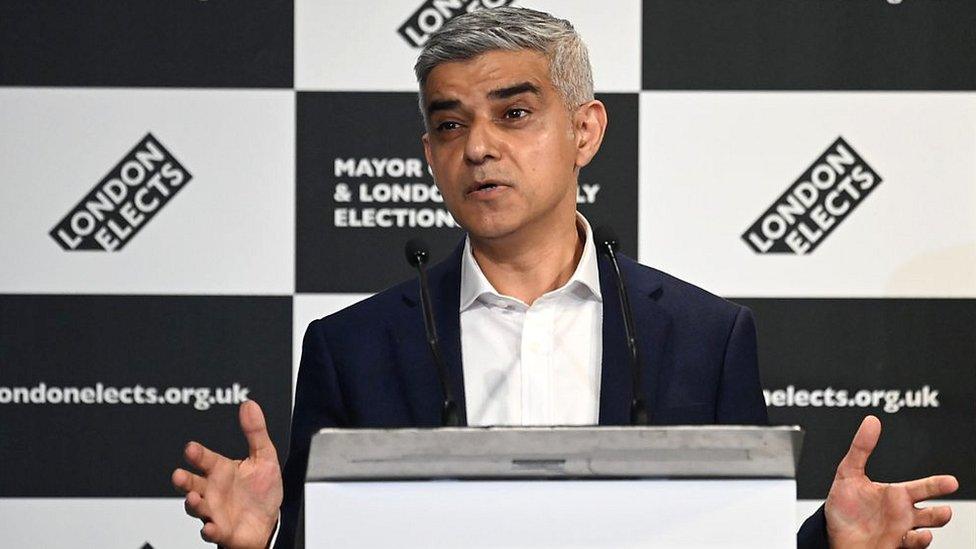London elections 2021: Record number of mayoral votes rejected
- Published
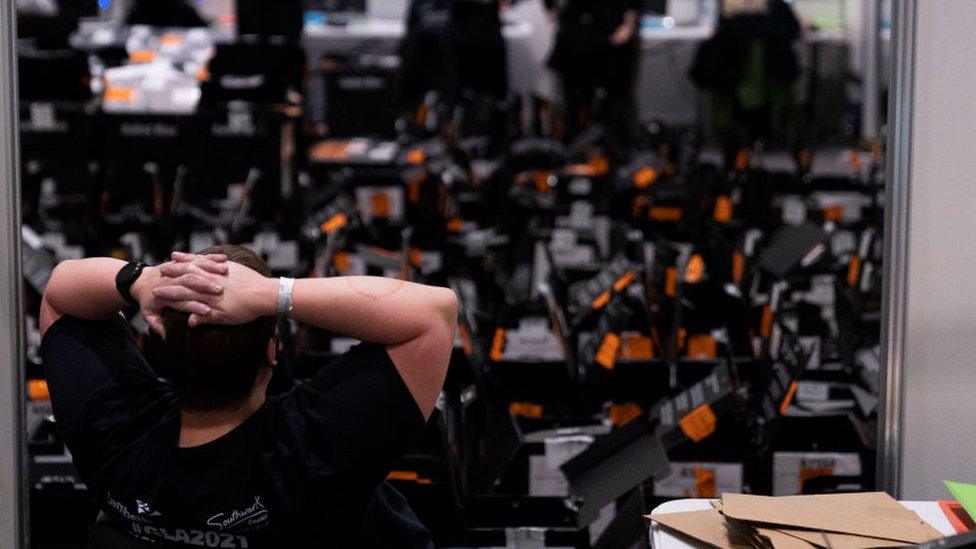
More than 114,000 first preference votes were rejected in the mayor of London election - double the previous record
A "confusing" ballot paper is being blamed for a record number of rejected votes in the mayor of London election.
About 114,000 first preference votes were rejected in Thursday's election, which saw Sadiq Khan win a second term, double the previous record.
The mayor of London is elected using a supplementary vote system, under which each voter can choose a first and second preference.
Officials said the system is known to "result in spoilt ballot papers".
Mary Harpley, who as Greater London Returning Officer was in charge of running the mayoral election, said: "The record number of 20 mayoral candidates in 2021 made it necessary to split the mayoral ballot paper into two sections.
"In order to help London's voters this year, we published clear 'how to vote' information in the booklet sent to every registered voter."
The government is currently looking to change the voting system, external for the mayor of London to first past the post.
Roughly 5% of this year's first preference votes were rejected.

The previous record was in the 2004 mayoral election, when 56,874 first preference votes were rejected, roughly 3% of the total votes that year.
Official figures show 87,214 ballots out of the 114,000 were rejected this year because people tried to vote for more than one candidate in the first preference column.
Constituencies with the highest number of rejected ballots were Ealing and Hillingdon, Brent and Harrow and City and East.
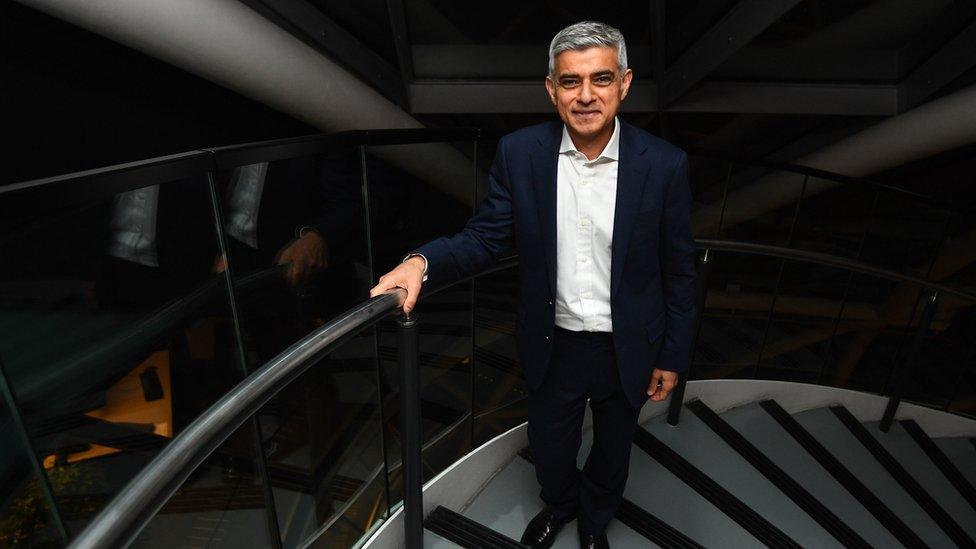
Sadiq Khan won 69% of second-preference votes after a run-off with his nearest rival the Conservative's Shaun Bailey
Professor Tony Travers, from the LSE Department of Government, said: "We already knew from previous elections that many people find the two preference opportunity in this election confusing.
"Nobody knows for sure why there's been an increased number of rejected ballots, we need to wait for a review.
"But there is a correlation between the increase in the number of people on the ballot paper and the number of people voting more than once.
"The whole purpose of voting is that everybody knows that their vote counts equally - that's how the system works.
"A large number of rejected ballots could have huge consequences. Imagine if this race had been very, very tight."
Mr Khan was re-elected with a 228,000-vote majority.
A spokesperson for the mayor said: "Mr Khan is deeply concerned by the issues around the ballot paper and the effective disenfranchisement of 100,000 Londoners.
"This must be looked into urgently to ensure nothing like this happens again."
Related topics
- Published31 March 2021
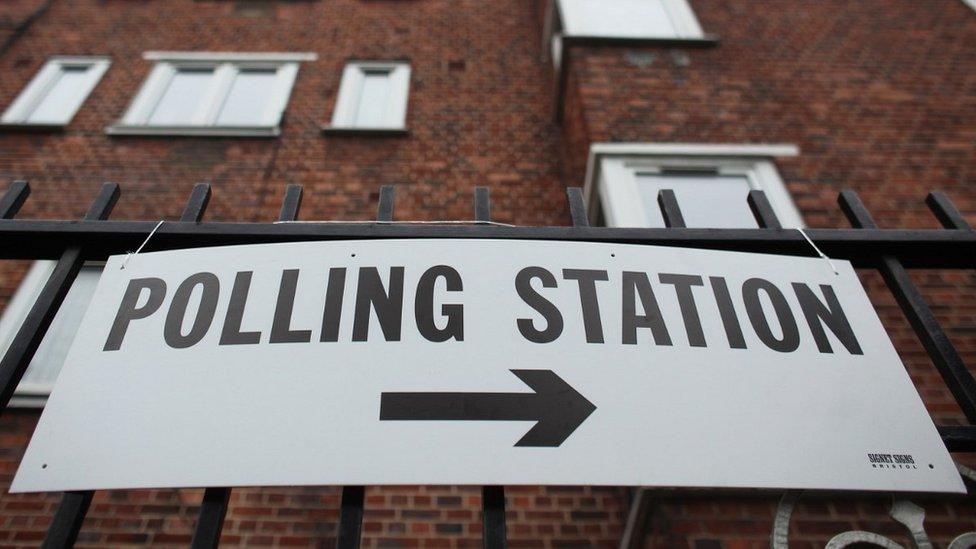
- Published7 May 2021
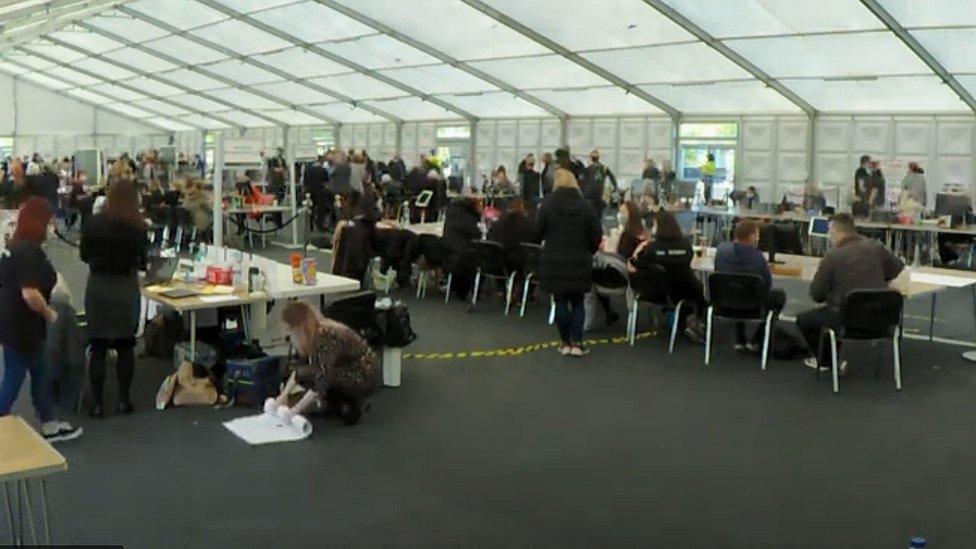
- Published9 May 2021
